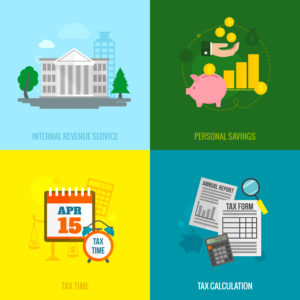7 Choices in Real Estate Foreclosure

Below are 7 choices in real estate foreclosure you will hopefully never actually need. Everyone’s situation is different. This list is merely a compilation of suggestions. Only a guide to help you get started. It should not be a substitute to talking with your CPA/attorney about your individual situation. Other resources may include the internet such as NOLO, depending of course what state in which your property is located.
OPTION 1: Pay down/Sell if you have the funds, in addition to real estate
This is an option if you have money to spare. When your home sells, you pay the difference between what it sells for and what you owe your lender. The positive to this is you can keep your credit intact. The negative is that you need disposable dollars to do this.
OPTION 2: Short Sale Choice
A short sale is where your home sells for less than what you owe. We need to negotiate with your lender(s) to accept less than what you owe. It will make a difference if your loan is a purchase money (non-recourse) or non-purchase money (recourse). Note: There can be tax ramifications depending on if you have a recourse or non-recourse loan. We can explain the difference if you give us a call. The positive is that you can pay off your loan(s) without any money out of your pocket. The negative depends on how many payments you missed. It can reduce your credit score 50-150 points.
OPTION 3: Walk-away/Foreclosure
This is a situation where you just walk away from your house. You can still have negative tax consequences and it can affect your credit by approximately 250 points. In most cases, a short sale is a better option.
*OPTION 4: Bankruptcy
Sometimes you will be advised to file bankruptcy. In a lot of cases, people will suggest this because they do not know about other options as mentioned above. This should be a last resort. It can affect your credit by approximately 400 points and your credit for the long-term.
OPTION 5: Deed in Lieu of
This is a situation where you basically hand the keys over to your lender. In most cases, the last thing your lender wants is the property back, and if they do, it is normally prior to foreclosure. At this point, your credit is probably already negatively affected. If you were current with your payments, why would your lender take the property back?
OPTION 6: Loan Modification with your Lender
This is a situation where you want to stay in your property, but can’t afford your current payment(s). The lender might renegotiate interest rates or reduce your payment and add it on to the backend of your loan.
OPTION 7: Rent from your real estate
You can rent your property out until the market turns upwards. In most cases, there will be a negative between the rent and your loan payment(s). Most of the experts feel this market will take 2-4 years to turn-around. You should be prepared to rent out your property a couple of years.
*Reductions to credit scores are estimates only. Individual situations will produce varying results.

We hope you found this article about “7 Choices in Real Estate Foreclosure” helpful. If you have questions or need expert tax or family office advice that’s refreshingly objective (we never sell investments), please contact us or visit our Family office page or our website at www.GROCO.com. Unfortunately, we no longer give advice to other tax professionals gratis.
To receive our free newsletter, contact us here.
Subscribe to our YouTube Channel for more updates.
Considerately yours,
GROCO, GROCO Tax, GROCO Technology, GROCO Advisory Services, GROCO Consulting Services, GROCO Relationship Services, GROCO Consulting/Advisory Services, GROCO Family Office Wealth, and GROCO Family Office Services.

Alan L. Olsen, CPA, Wikipedia Bio

Proud sponsor of the AD Show.

Democrats Take Dead Aim at Tax Inversions
The democrat lead U.S. Senate has been making a lot of noise lately regarding tax inversions, the practice of U.S. companies moving their corporate headquarters overseas in order to avoid the high price of overbearing U.S. corporate taxes. Those senators have apparently made good on a recent promise that they would look to put a…
How to Find the Right Investment Advisor
Are you looking to invest? Perhaps you just want some help with your financial planning or even your estate planning. Finding someone that can truly help you is difficult sometimes, simply because there are so many options to choose from. The Internet is full of so-called experts that can help you make wise investments and…
What’s the Deal With U.S. Corporate Taxes?
What’s the Deal With U.S. Corporate Taxes? There has been a lot of back-and-forth amongst lawmakers and political pundits in the media lately regarding U.S. companies switching their addresses to foreign locations in order to avoid corporate taxes. One side claims that there is nothing wrong with such deals, while many democratic lawmakers, including President…
Is the Government Going to Tax You for Using the Internet?
Is the Government Going to Tax You for Using the Internet? Taxes, taxes and more taxes: that appears to be the government’s answer for just about every problem we face in society. There seems to be no end to the list of things that the government wants to tax. Now it seems that Americans could…



